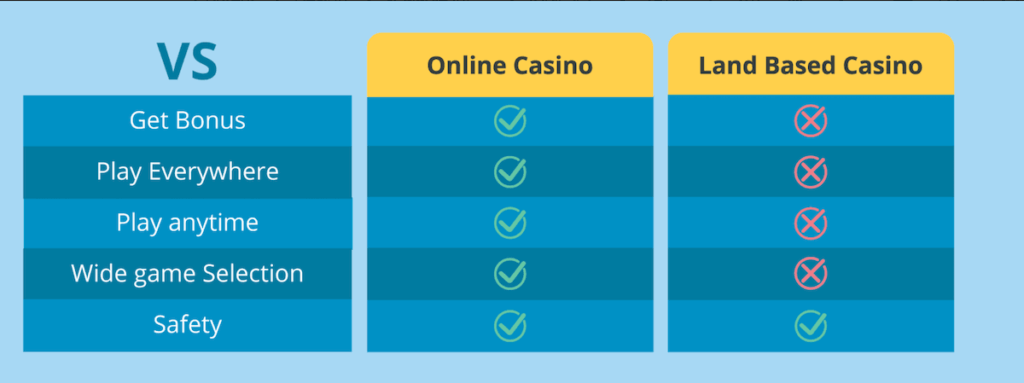New Jersey has some of the strongest online gambling regulations in the world.
This, according to a new report commissioned by the International Betting Integrity Association and H2 Gambling Capital. The report, which was released on June 10, has New Jersey ranked with Nevada as two of the most regulated markets in the world.
The state—which pioneered online gambling in America in 2013—ranked second to Nevada in the United States, earning an 82-point score. (Nevada earned 85 points).
Overall, New Jersey ranked sixth in the world, behind Great Britain (91 points), Malta (88 points), Denmark (86 points), Nevada and Sweden (83 points).
In this unique report, the IBIA and H2 Gambling Capital evaluated 20 different online gambling markets on a number of categories, including regulation, taxes, products, legal integrity, and marketing efforts.
Notably in the report, New Jersey’s online betting tax—while 5% more than land-based betting, from 9.25% to 14.25%—was comparable to the industry-accepted rate of 15%. The report specifically mentioned the state’s unwillingness to include an additional fee for sports betting.
While online betting is legal in five states (New Jersey, Delaware, Nevada, Pennsylvania, West Virginia and Michigan), the report only included New Jersey and Nevada.
Here are the New Jersey highlights from the report:
- Market summary: “Instrumental in repealing PASPA and progressive stance on regulation. Good GGR tax base and strong on integrity. Rejection of the sports data mandate and integrity fee. Linking online licences to land-based premises may restrict market potential.”
For regulation, the state was awarded 25 out of 30 points. Here are the report’s findings:
- Regulatory framework: “New Jersey was instrumental in repealing PASPA in mid-2018, allowing all US states to licence sports betting. Land-based and online betting is regulated by the NJ DGE in line with the Sports Wager Law 2018. The NJ Racing Commission issues initial sports betting licenses to racetracks, with renewals via the DGE.”
- Licensing numbers & costs: “Online licences are attached to land-based licences offering betting (casinos and racetracks). Each licensee may provide up to three sports betting websites (skins). Land-based or online sports betting licence applications cost $100k. Annual renewals cost at least $100k. There are seven casinos and three racetracks offering land-based betting, with around 20 online betting sites. The NJRC licenses racing pool (pari mutuel) betting on and off-track (fees vary).”
- Enforcement & player protection: “Betting is prohibited for under-21s (expect parimutuel under 18). The DGE maintains a central self-exclusion list covering land-based and online activities. Self-exclusion periods range from a minimum of one year to lifetime. Players can set deposit, spending and time limits. AML in place.”
For taxation, New Jersey was awarded 17 out of 20 points. Here are the report’s findings:
- Betting tax & levies: “Point of consumption regime. Land-based sports betting tax 9.75% GGR with online 14.25% GGR. Bets subject to 0.25% federal tax on turnover (handle); a bipartisan bill in 2020 proposes repealing this. No state tax on player winnings but treated as income (loses deductible) under federal tax. No official league data mandate or integrity fee to sports leagues.”
- Other taxation: “9% corporation tax in New Jersey, with a federal rate of 21%.”
For product, the state was awarded 16 out of 20 points. Here are the report’s findings:
- Betting channels: “Land-based and online racing and sports betting is licensed.”
- Types of betting: “Fixed odds, exchange and pool betting permitted. Virtual betting can be offered. The DGE provides a list of approved bet types and sporting events. Betting is prohibited on any collegiate sport or athletic event in New Jersey or on any New Jersey college team game playing anywhere else. An exception is made for some events e.g. March Madness, and international events where persons under 18 make up a minority.”
For integrity, New Jersey was awarded 13 out of 15 points. Here are the report’s findings:
- Betting integrity: “Operators are required to report suspicious betting to the authorities and are also required to engage with an integrity monitoring provider (13:69N-1.6). The USA/New Jersey has not signed or ratified the Council of Europe sports manipulation convention and is not a member of its network of national platforms.”
- Prosecution: “Federal offence of Bribery in Sporting Contests (U.S. Code § 224) with imprisonment for up to five years. Various state level offences of cheating.”
For advertising, the state was awarded 11 out of 15 points. Here are the report’s findings:
- Advertising (incl. bonuses) & sponsorship: “General advertising rules contained in the NJ Admin. Code (13:69C-14.2) that gambling advertising be based upon fact, and not be false, deceptive or misleading. A sports pool operator must ensure that problem gambling messaging is included on all print, online or broadcast advertisements (13:69N-1.8).”

